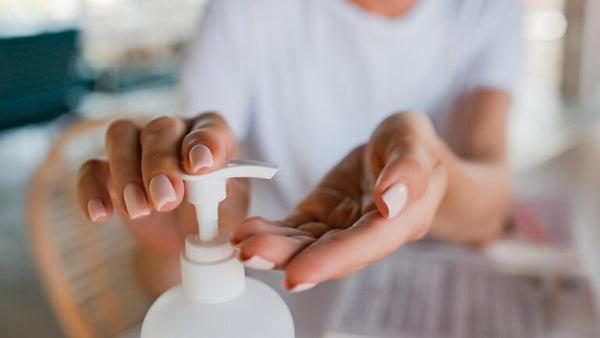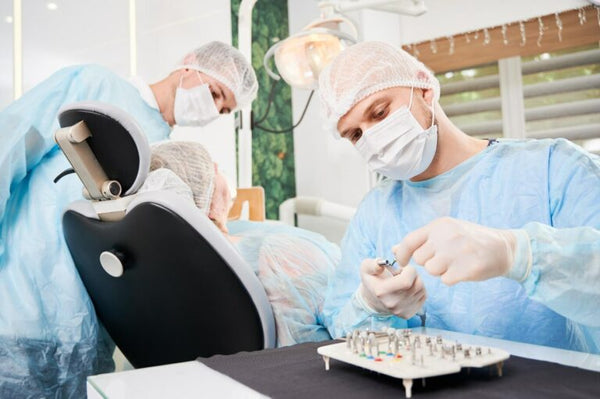Infection Control and Sterilization Practices in Dental Offices: Your Guide to a Safe Environment
In the realm of dental care, nothing is more paramount than ensuring a safe and clean environment for both patients and the dental team. Effective infection control and sterilization practices are not just a necessity; they are a fundamental obligation. With the ever-evolving landscape of dentistry and healthcare, it’s essential for dental offices to stay up-to-date with the latest guidelines and infection control products. This blog post is your comprehensive guide to maintaining a clean and safe dental office environment.
Why It Matters
Infection control in a dental office is not merely a matter of good hygiene; it’s a matter of patient and staff safety. Dental procedures often involve the use of sharp instruments and produce aerosols that can contain potentially infectious materials. To minimize the risk of disease transmission, it’s crucial to implement strict infection control practices.

The Basics of Infection Control
Hand Hygiene: The foundation of infection control starts with thorough hand hygiene. Regular handwashing with soap and water, or the use of hand sanitizers, is non-negotiable.Personal Protective Equipment (PPE): Dental staff should wear appropriate PPE, including gloves, masks, eyewear, and gowns to protect themselves and patients from potential infection.
Surface Disinfection: Dental offices should maintain a strict protocol for cleaning and disinfecting surfaces, including dental chairs, countertops, and equipment. EPA-registered disinfectants are commonly used.
Instrument Sterilization: Dental instruments that come into contact with patients’ blood or saliva must be sterilized properly. Autoclaves are the gold standard for instrument sterilization.
The Latest Safety Guidelines
As the understanding of infection control evolves, so do the guidelines. The Centers for Disease Control and Prevention (CDC) and the American Dental Association (ADA) are at the forefront of establishing and updating these guidelines. Some recent considerations include:
Air Filtration: Dental offices are now prioritizing safety with HEPA filters and air purifiers to reduce aerosol transmission risk. These investments underscore their dedication to the well-being of patients and staff.
Pre-Procedural Rinses: Aimed at reducing oral microbial load, pre-procedural rinses are gaining prominence in dental care as a crucial infection control measure, especially during procedures that produce aerosols.
Telehealth and Teledentistry: The utilization of teledentistry can help reduce unnecessary in-person appointments, decreasing the risk of infection.
Vaccination Policies: Many dental offices now have vaccination policies for staff, including vaccination against diseases like hepatitis B and influenza.

Products for Infection Control
In the fight against infection, dental offices have access to a wide range of products:
High-Quality PPE: Investing in top-tier Personal Protective Equipment (PPE) for your dental staff is a must for ensuring office safety. This includes high-filtration masks, offering a crucial barrier that protects both your team and reassures patients of their well-being. High-quality PPE underscores your commitment to professionalism and a clean, safe dental environment.
EPA-Registered Disinfectants: Opt for EPA-registered disinfectants designed for dental office use. These products, approved by the Environmental Protection Agency (EPA), provide a strong defense against various pathogens, assuring staff and patients of a safe, sterile environment. This choice highlights your commitment to health and safety compliance.
Autoclaves: Regularly service and maintain your autoclaves to ensure thorough instrument sterilization. Keep a proper sterilization log as both a compliance record and a symbol of your unwavering commitment to patient safety.
Single-Use Items: Minimize cross-contamination risks by adopting single-use disposable items in your dental office. This commitment to hygiene enhances safety and patient trust.
Advanced Air Filtration Systems: HEPA filters and air purifiers can significantly improve air quality.
Infection control and sterilization practices are the bedrock of dental office safety. As the field of healthcare continues to evolve, it’s vital for dental professionals to stay abreast of the latest guidelines and invest in the most effective products. By doing so, dental offices can create an environment that is not only aesthetically clean but truly safe for everyone who walks through their doors. Remember, in the realm of healthcare, there is no room for compromise when it comes to infection control.

